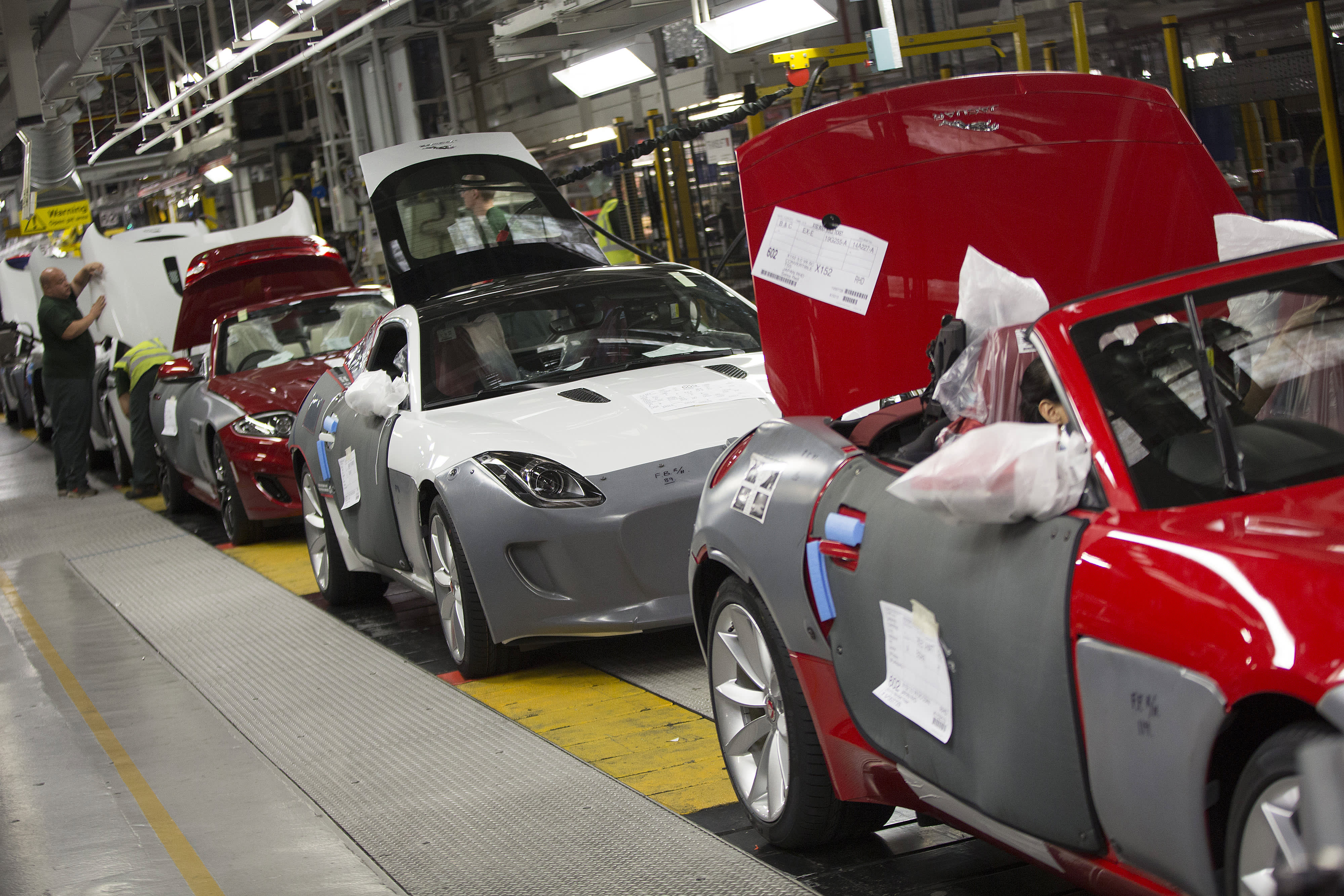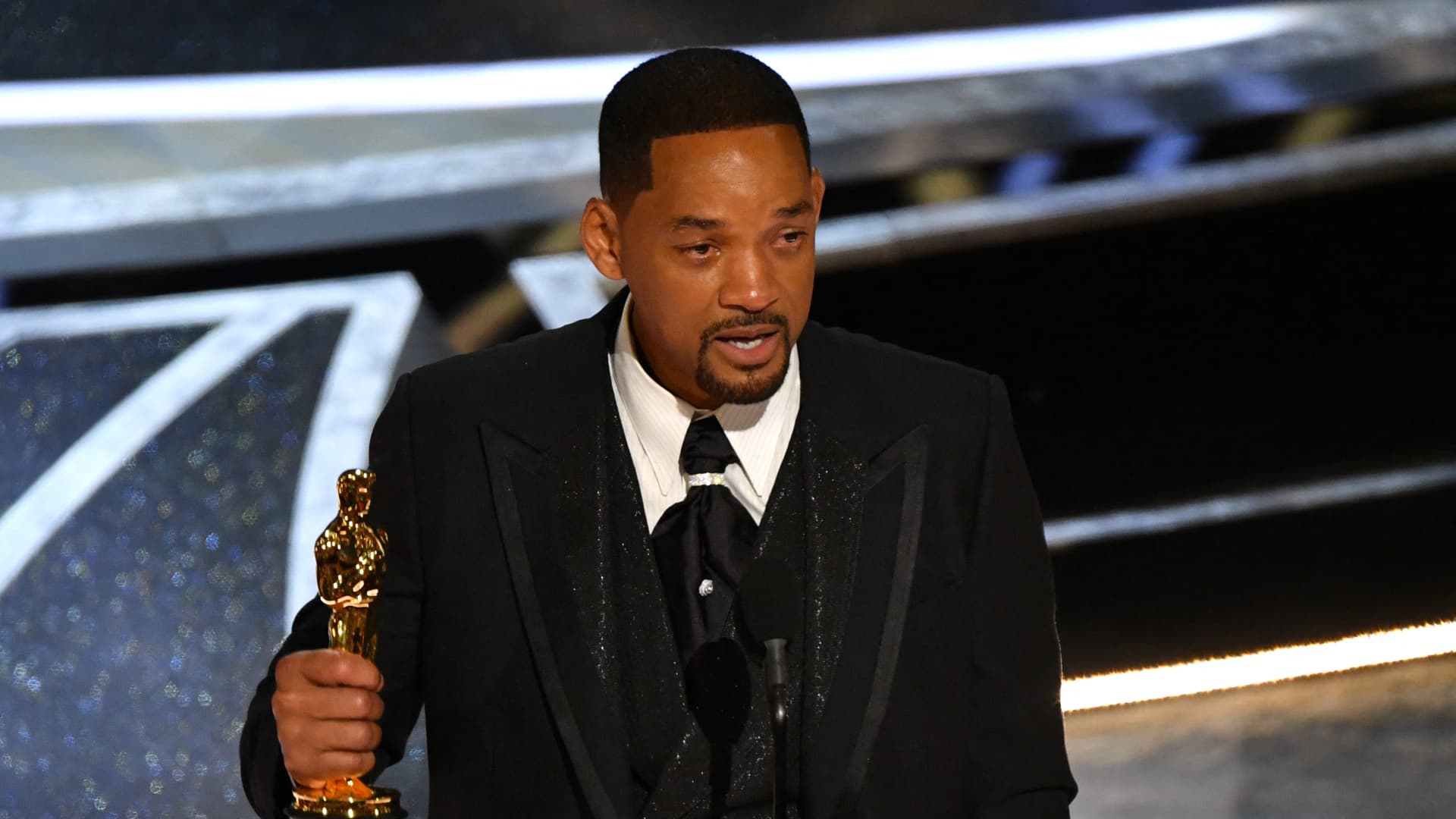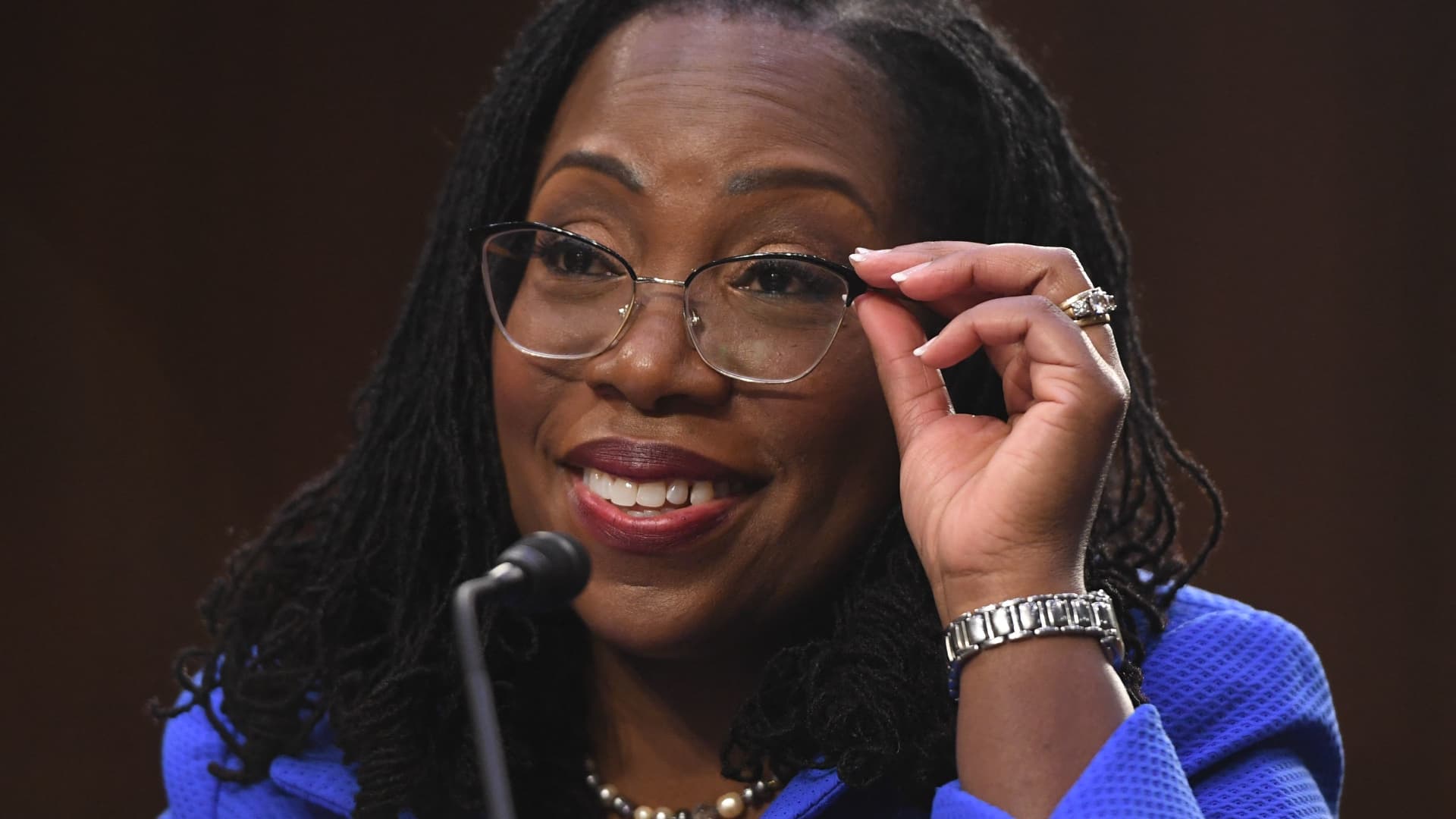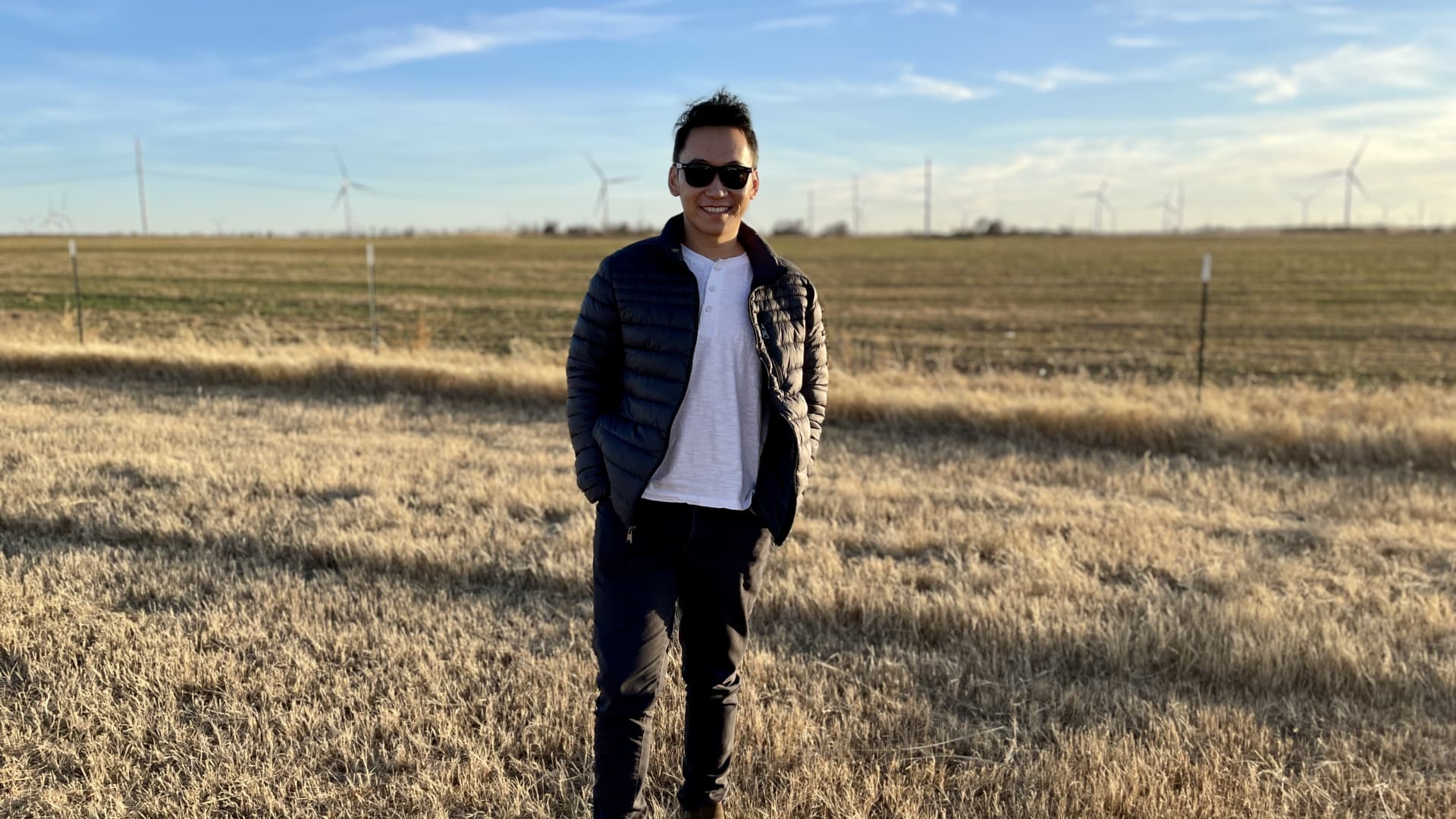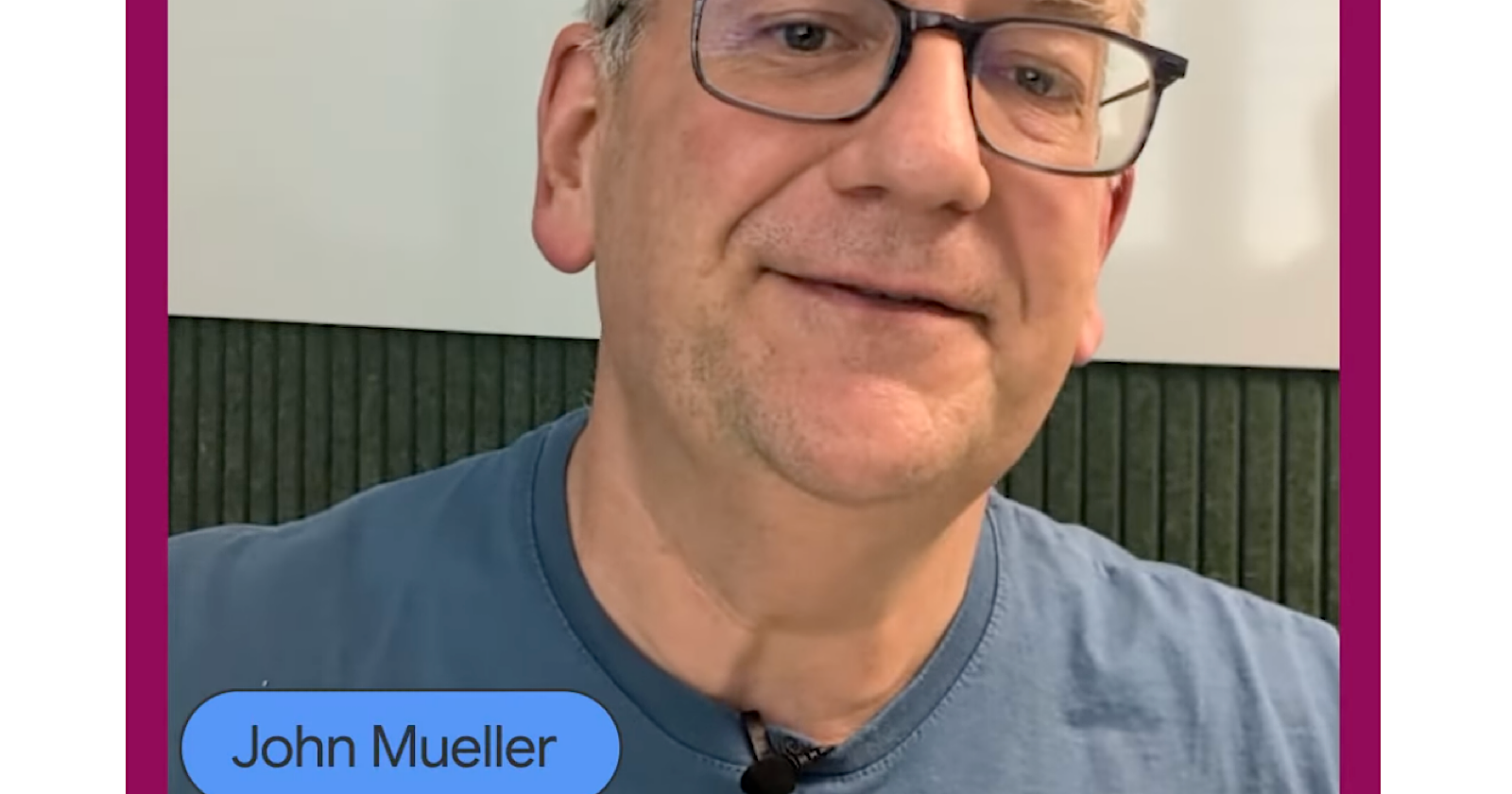A 26-year-old founded a medical startup — the same year he lost almost half his vision
Its devices assess cardiovascular risk through the use of retinal imagery and artificial intelligence — a first of its kind, Mediwhale told CNBC Make It.
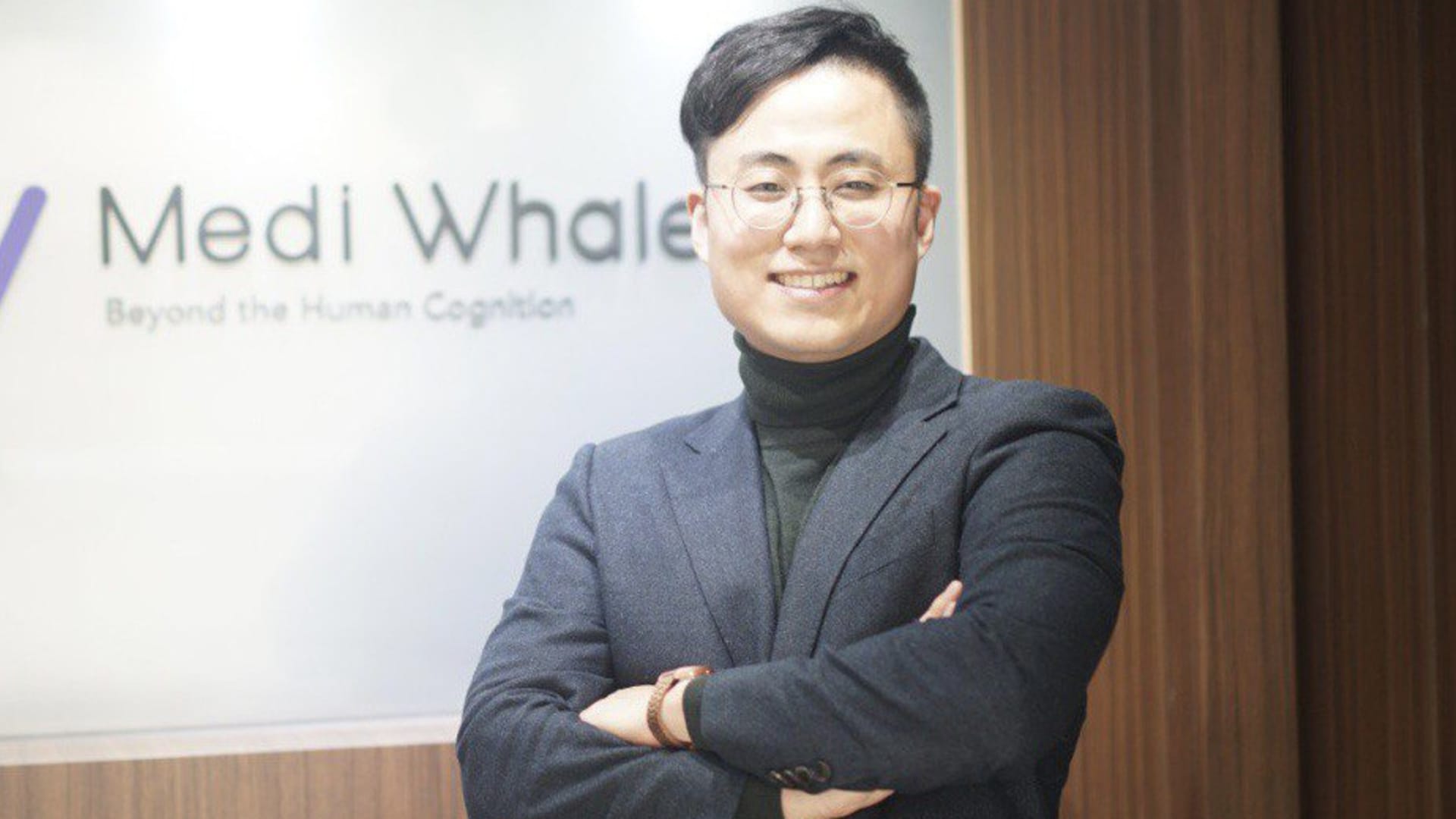
Kevin Choi, who is Medi Whale's CEO, said he is a firm believer that his diagnosis is "not a coincidence."
Mediwhale
As a rifleman in the Republic of Korea Marine Corps who endured harsh training as part of his national service, Kevin Choi had "no doubt" about the state of his health.
"I've got quite severe myopia, but I still believed I was very healthy," Choi told CNBC Make It.
But all that changed in 2016, when he discovered he had glaucoma — a chronic, progressive eye disease caused by optic nerve damage.
While glaucoma is more common in older adults, Choi was only 26 when he was diagnosed.
By then, Choi said he had already lost half of his right eye vision, and only had about "60% to 70%" of his left eye vision left — something which could have been avoided with early detection.
But in the same year, he rose above these adversities by launching his own health-care startup, Mediwhale.
Mediwhale says it provides assessment of cardiovascular risks through artificial intelligence and retinal imagery.
Mediwhale
Its devices assess cardiovascular risk through the use of retinal imagery and artificial intelligence — a first of its kind, Mediwhale told CNBC Make It.
With starting capital of $5,000, he launched the startup with his ophthalmologist, Dr. Tyler Hyungtaek Rim six years ago.
Today, the company said it has raised millions from investors, with its devices approved in the EU and several countries in Asia.
How did an advanced glaucoma diagnosis propel Choi to start his own company? CNBC Make It finds out.
A faster alternative
Choi, who is Mediwhale's CEO, said he is a firm believer that his diagnosis is "not a coincidence."
As an industrial engineer by training, he started thinking of possible AI solutions that can enhance early detection of diseases.
"There must be some reason this happened to me. And I think that I could solve this myself, because I'm an engineer," said the 31-year-old.
As a medical doctor, Rim also understood the "unmet needs" in clinical settings when it comes to the detection of cardiovascular diseases — typically done through computerized tomography scans.
"CT scans require a lot of resources and are time consuming, therefore it is a burden for both health-care providers and patients," he added.
Long patient journey is a big hurdle to get past. Even now, I feel very anxious every time I visit the hospital for glaucoma checkups … it's a long test with a two to three hours wait [for results].
Kevin Choi
Co-founder and CEO, Mediwhale
Choi's own experience with "long patient journeys," referring to the time between a patient getting in queue at a hospital to getting test results from doctors — also prompted him to design a faster alternative.
"Long patient journey is a big hurdle to get past. Even now, I feel very anxious every time I visit the hospital for glaucoma checkups … it's a long test with a two to three hours wait [for results]."
Mediwhale claims that with just one retinal photograph per eye, it achieves the "same accuracy" in detecting cardiovascular risk as a CT scan, while delivering patient reports "within a minute."
"It takes just a few seconds as it doesn't require any dilation. The image is simultaneously uploaded to the cloud system upon taking and automatically analyzed by our AI," Rim explained.
Convincing doctors
The biggest challenge that the founders faced was convincing other doctors that the eyes could really be "the window to the whole body," said Choi.
"The eyes are the only organs in the body in which you can see blood vessels without any invasive measures," Rim added.
"Changes in your retina's microvascular structure … have been identified as strong predictors of blood vessel-related diseases, such as cardiovascular and kidney issues, because the changes often happen well before you may even notice certain important symptoms," Rim explained.
"The healthcare business is a very conservative one. Every conversation I have with doctors or experts … is a lesson to be learnt," said Kevin Choi.
Mediwhale
Staying humble
For Choi, finding your "reason" and purpose is crucial to overcoming challenges — both in life and in business.
Knowing his glaucoma could have been detected earlier keeps him going in his mission, he said, which is to prevent more people from detecting diseases when it's "too late."
"Maybe for someone else who is also confident about their health … a simple eye scan could change his life."
The health-care business is a very conservative one. Every conversation I have with doctors or experts … is a lesson to be learnt.
Kevin Choi
co-founder and CEO, Mediwhale

 UsenB
UsenB 









